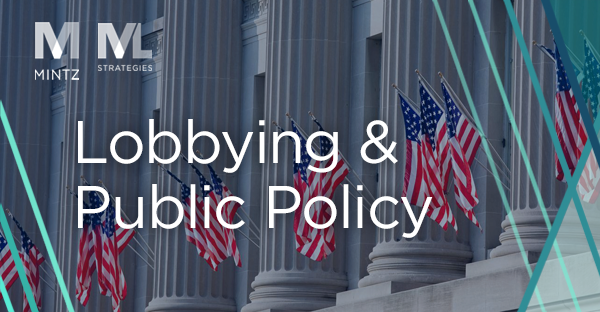
COVID-19 Viewpoints
Filter by:
363 Sales as a Health Care M&A Tool, Part 1 – Overview
July 28, 2020 | Blog | By Deborah Daccord, William Kannel, Tim McKeon
Although health care may be well positioned to weather an economic downturn as an industry, certain sectors, including ambulatory surgery, vision, dermatology, dental, and other physician practices will bear the brunt of COVID-19 stay-at-home orders and patients delaying non-emergency care. While the onset of COVID-19 has delayed or derailed many transactions, strategic buyers should consider all of the different transaction tools available them to help maximize value and successfully get to closing. For knowledgeable investors and strategic buyers, now is the time to position yourself to acquire valuable health care assets at steep discounts.
For those unfamiliar with 363 Sales, a 363 Sale couples a flexible and fast process with ample liability protection for willing buyers. The primary benefit to a 363 Sale is that a buyer can acquire the debtor’s assets free and clear of virtually all liens, claims and encumbrances burdening the assets and the debtor. When a target is experiencing severe financial distress, the benefit of acquiring assets “free and clear of all liens” is extraordinarily valuable.
Read more
For those unfamiliar with 363 Sales, a 363 Sale couples a flexible and fast process with ample liability protection for willing buyers. The primary benefit to a 363 Sale is that a buyer can acquire the debtor’s assets free and clear of virtually all liens, claims and encumbrances burdening the assets and the debtor. When a target is experiencing severe financial distress, the benefit of acquiring assets “free and clear of all liens” is extraordinarily valuable.
Vaccinate or Terminate – Mandatory Vaccination As Workplace Policy
July 28, 2020 | Blog | By Jennifer Rubin
The Future of Telehealth
July 24, 2020 | Video
Sarah Beth Kuyers discusses the actions taken at the federal and state level to increase access to telehealth in response to the COVID-19 pandemic and takes a look at the recent movement to make some of these changes permanent.
Read more
Beyond COVID: House Committee Advances Several FDA-Related Bills
July 23, 2020 | Blog | By Margaret Jewett
Despite the COVID-19 pandemic, the House Energy & Commerce Committee continues work on several health policy issues, including Orphan Drug Act reform and continuous manufacturing.
Read more
Disclosure Considerations Regarding Operations, Liquidity, and Capital Resources
July 21, 2020 | Advisory | By Anne Bruno
This advisory discusses the SEC’s recent guidance on operations, liquidity, and capital resources disclosure that companies should consider in light of the COVID-19 pandemic.
Read more
Bipartisan Group of Senators Introduces Legislation to Waive 340B Eligibility Requirements Due to COVID-19
July 21, 2020 | Blog | By Daryl Berke
On July 2, a bipartisan group of six senators introduced legislation to waive 340B eligibility requirements for hospitals participating in the program during the COVID-19 pandemic. S. 4160 permits hospitals that are 340B-eligible based on their disproportionate share (“DSH”) adjustment percentage to maintain eligibility even if their DSH adjustment percentage falls below the requisite threshold.
Read more
Democrats Lay Groundwork for Infrastructure & Clean Energy Ahead of General Election
July 20, 2020 | Blog | By Thomas Burton, R. Neal Martin
Strategies for Adjusting Executive Performance Goals in the Covid-19 Era
July 20, 2020 | Advisory | By Anne Bruno
This advisory summarizes recent proxy advisor guidance on and strategies for adjusting annual performance goals in light of the COVID-19 pandemic.
Read more
Administration Rescinds Newly Released Modifications to International Student Policy
July 15, 2020 | Alert | By Lindsey Steinberg
On July 14, the federal government’s rescinded its July 6 modification to a student exchange program that would have required nonimmigrant students to leave the U.S. while pursuing a course of study entirely online.
Read more
COVID-19 Relief Programs: Recent Criminal Enforcement and Anticipated Trends
July 9, 2020 | Blog | By Eoin Beirne, Nicole Henry
Leading up to a webinar on July 15, 2020, we are publishing a blog series covering the risks of enforcement against companies that received COVID-19 relief funds under the CARES Act and strategies for mitigating those risks. This third, and final, installment of our series discusses emerging and anticipated criminal enforcement involving COVID-19 relief programs.
Read more
Massachusetts’ Safety Standards for Offices: What Businesses Need to Know
July 8, 2020 | Blog | By Chelsea Wood-Brown
On July 6, 2020, Massachusetts entered Phase 3 of its four-phased approach to reopening. The Administration also updated its Sector Specific Workplace Specific Safety Standards for Office Spaces to Address COVID-19, which were originally released on May 18.
Read more
Massachusetts Offices are Subject to Mandatory Screening as Part of Phase III Reopening
July 8, 2020 | Blog | By Danielle Bereznay
On July 6, Massachusetts moved into Phase III of its reopening plan, which allows many businesses and offices spaces to return to the physical workplace. With Phase III comes a new mandatory safety standard: screening employees for COVID-19 or close contact at the beginning of each shift. While the Office Spaces Safety Standards are geared toward office workplaces, we interpret this requirement to encompass an employer’s obligations to both employees and visitors to the office.
Read more
COVID-19 Relief Programs: The Anticipated Wave of False Claims Act Cases and Oversight Agency Enforcement Activities
July 2, 2020 | Blog | By Brian Dunphy, Geoffrey Friedman, Caitie Hill, Jane Haviland, Karen Lovitch
Leading up to a webinar on July 15, 2020, we are publishing a blog series covering the risks of enforcement against companies that received COVID-19 relief funds under the CARES Act and strategies for mitigating these risks. This second installment of our series discusses our predictions related to litigation and enforcement activities. We expect a substantial number of False Claims Act (“FCA”) investigations and lawsuits initiated mainly by whistleblowers (also known as “relators”). The FCA remains the government’s primary enforcement tool for pursuing alleged fraud by recipients of government funds, and FCA claims present substantial risk because the statute permits treble damages and significant per-claim penalties. For example, an erroneous $100,000 loan under the Paycheck Protection Program (“PPP”) can result in $300,000 in FCA damages, or more.
Read more
Today’s The Day: CCPA Enforcement Begins
July 1, 2020 | Blog | By Cynthia Larose
As we’ve been writing about in this space for some time, today marks the opening of the CCPA enforcement era. Despite protestations from the business community, and requests for delay due to the lack of regulations until early June and the ongoing COVID-19 state of emergency, AG Xavier Becerra declined to extend the deadline, saying “Businesses have had since January 1 to comply with the law, and we are committed to enforcing it starting July 1.”
Read more
SEC Extends Email Delivery of Certain Paper Documents as a Result of Coronavirus (COVID-19)
July 1, 2020 | Advisory | By Daniel T. Kajunski
Read about the SEC’s extension of email delivery of certain paper documents, including certain reports by foreign private issuers, as a result of the coronavirus.
Read more
Update: Global Entry Enrollment Centers Scheduled to Re-Open on July 6, 2020
July 1, 2020 | Blog | By Colleen DiNicola
SEC Extends Guidance on Manual Signatures Required under Rule 302(b) of Regulation S-T as a Result of Coronavirus (COVID-19)
July 1, 2020 | Advisory | By Daniel T. Kajunski
Read about the SEC’s extension of its earlier guidance on manual signatures required under Rule 302(b) of Regulation S-T as a result of the coronavirus.
Read more









